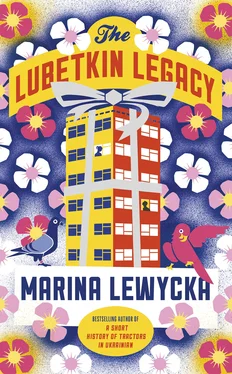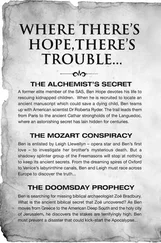The Nairobi River has swollen into a foaming filthy torrent. At the bridge, a gaggle of little boys are yelling and running ahead of her waving sticks. Suddenly they stop dead in their tracks, shriek, and turn back to run in the opposite direction, almost pushing her into the water. Maybe this short cut isn’t such a good idea. She clings on to the railings, and a moment later three sodden goats thunder across the bridge, and behind them another gaggle of grinning boys with sticks chase them into the alleys. She can hear their excited shrieks long after they have disappeared from view.
At Kambi Muru, she carries on up to Kibera Drive, hoping the matatus will be running once more. The rain has eased now, and there are a few other people at the stop. Before long, a battered yellow Toyota pulls up full of damp people on their way from church. There is little traffic, and despite having to navigate around a number of deep treacherous puddles and a flooding water main, she is soon back at the office. She fishes her keys out of her bag and looks around.
There is no sign of Queenie.
She stands at the intersection, peering impatiently in both directions. The streets are deserted. It is too annoying. Queenie seemed in such a hurry. Njoki will be waiting for her return to sit down to lunch.
As she waits, a battered white taxi-van pulls up close by. Thinking it must be Queenie arriving, she steps forward. Then a man’s voice shouts her name, she spins around, and the next thing she knows, rough arms grab hold of her, her hands are tied behind her, and as she starts to scream something dark and suffocating is pulled down over her head. Then she is bundled into the back of the van. The engine revs and roars as she lies face down on the floor, seething with fear and rage, listening to the voices of her three kidnappers discussing where they should take her in a Kamba dialect she can barely follow. Her heart is beating so fast she thinks it will burst out of her chest, but all her senses are on full alert, feeling the vibration of the engine through her cheekbone, registering every bump and swerve of the road through her spine, smelling the burning diesel from the engine and the sweat of the three men.
Then the van swerves, her head hits something hard and she blacks out.
When, after four weeks at The Bridge, the final curtain came down to wild applause, Waiting for Godot transferred to the West End. I was pleased, but not surprised. The show had an electricity that seemed to light up the audience in that small space. Transferring to a bigger theatre lost the intimacy, but was replaced by the pulse generated by a much bigger crowd.
Stacey came along once or twice out of loyalty, but I think she got bored with the play in a way you don’t get bored if you’re one of the players. She was pleased when I was mentioned in reviews and my face began to appear in the better class of newspaper, though admittedly not on the backs of buses. I took it all in my stride without letting it go to my head: the sudden celebrity seemed as unreal and arbitrary as my prolonged absence from the stage had been.
During that time I would often return home after midnight, pleasantly tired in my bones from the long effort of focusing on the stage-moment, flushed with the triumph of a standing ovation or slightly fuddled from a post-performance drink on an empty stomach. The flat greeted me with a welcoming hush after the clamour of the theatre. Flossie was usually asleep, and though I missed Inna’s cheerful presence I no longer felt loneliness stalking me like an assassin.
Stacey was at the last West End performance of Godot . There were ovations, flowers, tears, farewells, and a long boozy supper afterwards, and in the small hours she guided me towards the little red car that was parked around the corner, and thence to her bed. We made love, and as I drifted into sleep I felt a pleasant warm sensation which seemed to start in my chest and emanate throughout my whole body. This, I realised, in the sweet moment before sleep whacked me out, is what they call happiness. It was so long since I had felt it, I had almost forgotten what it was like.
Thwack! The blow jerks her into consciousness. She can feel a bruise starting to form.
‘Tell us where you put the papers. Else we kill you.’
The older man is standing over her, while the younger one is tying her to a chair from behind. The third man, the van driver, has disappeared.
‘I don’t know what you’re talking about. My office is full of papers.’ She struggles to control the wobble in her voice. Did Queenie or someone else in her office betray her? Lynette? Could Marc have alerted his client?
‘We know you got papers about Nzangu. You better tell us where you put them, else we rape you then we spoil your pretty face, white bitch.’
She feels something cold and smooth like a blade against her throat. She feels it move upwards until it rests on her cheek. Her heart is thumping like a fish on a deck, but she digs her fingernails into her palms and orders herself to stay cool. Breathe deeply, she tells herself. Keep breathing, in and out, don’t let the fear take over.
‘We already got Queenie,’ says the first man.
‘We gonna kill her too, if you don’t talk,’ adds the other.
Have they really kidnapped Queenie, or is Queenie part of the plot? Who told Nzangu about the photocopies? Her brain is fuzzy from pain and terror.
‘I … I can’t remember. Mtu ni utu , be human, brothers,’ she pleads, playing for time. Her voice echoes back to her against the bare walls.
‘This’ll help you remember!’
Thwack! A jab of pain rushes down her left temple to her jaw. If only they would stop hitting her, she would be able to think what to do.
The blow has dislodged the blindfold, and she can see that she is in a long low-ceilinged room with a square window at one end. It looks like some kind of storeroom, with things shrouded in plastic stacked up against the walls. What things? She tries to make out the shape. They look like buckets. Hundreds of buckets. The window is closed, and the air is thick and humid. She can smell the men’s sweat and the sharp scent of her own fear. A warm trickle runs down the inside of her leg.
‘Waga got your key. He gone search your office. If you tell us, it will go better for you.’ It is the older man talking. His voice is less aggressive than the young man.
‘They’re not in the office. I … I posted them. Didn’t Queenie tell you?’
She hid the copies so casually inside the computer manual that a thorough search of the office would surely uncover them, if somebody knew what they were looking for. She thinks of the re-invoices she posted to Gillian Chalmers in London. She will have got them by now, but has she read them? And even if she has, will she do anything about them? Or might she just as well have posted them to Marc himself?
‘You’re lying, white bitch.’ The younger man is short and heavily built, with a sneering twang to his voice.
She feels his rough hand cover her breast. She shudders. No one has ever called her white before. Nor a bitch, for that matter. In different circumstances it might amuse her.
‘Who you post them to?’ asks the older man, who is thin with greying hair and deeply lined cheeks.
‘I posted them to the office of the corruption investigator of course.’ She wonders who, if anybody, occupies that precarious post at present, since the resignation of Johnny Githongo. ‘On Friday. On my way home.’ She hopes they don’t press for details, or they will soon realise she’s bluffing. ‘Whatever you do to me, he will get them tomorrow. Nzangu and his hangers-on will be in prison, and nothing you can do will save him now. But if you let me go at least you will save yourselves.’ Her voice doesn’t sound as confident as she intends, but at least she is managing to hold back her tears.
Читать дальше












